The aim of Transcribe Georgian Papers is to produce useable text documents of the manuscript materials and not critical editions. Please be aware this document may contain errors in the transcription.
Found an error? Please report errors and issues in the transcription to transcribegpp@wm.edu.
repulses. The business of mankind in this life being rather to act than to know, their portion of knowledge is dealt to them accordingly. It ought to be laid down as a principle, that whatever is permitted to befal a just man, whether poverty, sickness, or any of those things which seem to be evils, shall either in life or death conduce to his good. [[underline]] Demetrius [[/underline]] says, that nothing would be more unhappy than a man who had never known affliction. He compares prosperity to the indulgence of a fond mother to a child, which often proves his ruin; but the affection of the divine Being to that of a wise father who would have his sons exercised with labour, disappointment, and pain, that they may gather-- strength and improve their fortitude. On this occasion Seneca says ,, That there is not on earth a spectacle more worthy the regard ,, ,, of a Creator intent on his works than a brave man superior to his ,, sufferings. This thought will appear yet more reasonable, if we consider human life as a state of probation, and adversity as the post of honour in it, assigned often to the best and most select Spirits. We are not at present in a proper situation to judge of the counsels by which Providence acts, since but little arrives at our knowledge




